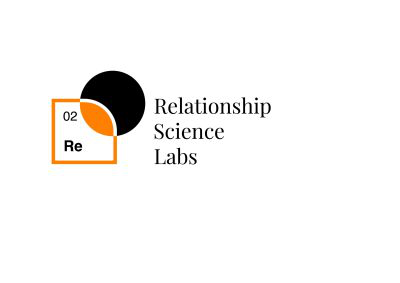Relationships are a complex yet beautiful experience. Committing to sharing your life with someone involves a lot of hopes, desires, and, of course, expectations. Whether you realize it or not, we all have expectations from our partners and relationships.
Media plays an important role in shaping your expectations and contributing to the dynamics of modern relationships. Since media interacts differently with everyone, your expectations might not always align with those of your partners, and you may find yourself navigating differences and compromises. And that’s okay. The key is to learn how to communicate expectations openly to find a realistic middle ground where both of you can be happy.
This article will unlock the secrets to long-lasting happiness by setting realistic expectations in relationships. It will also explore the impact of societal influences and common myths on relationship ideals, offering practical strategies to manage these expectations effectively.
Want to know more about overcoming media expectations and having a healthier relationship? Keep reading!
How social media influences relationship expectations
Social media profoundly impacts modern relationships, almost making partners dependent on it to seek validation and happiness. It may have its positives for maintaining bonds. However, there is no doubt that media can put undue pressure on your relationships.
Since social media allows everyone to share their life online, it can often showcase idealized versions of reality. This can lead to unrealistic relationship expectations as individuals compare their relationships to the glamorized presentation of other relationships they see online. Trying to match these idealized versions can put pressure on the relationship and make you feel dissatisfied.
According to research, the more time an individual spends on social media, the more likely they will experience a negative impact on their overall emotional well-being and the decreased quality of their relationships.
Romantic social media portrayals of relationships are based on some of the most popular myths about love and romance, and these myths play an important role in shaping relationship expectations too.
Debunking relationships myths and expectations
“Love at first sight” or “Love conquers all” — do these sayings ring a bell? You’ve probably heard of them countless times. However, it’s important to know that these are myths and are not based on realistic relationship standards. On the surface, they may sound romantic and idealistic, but they often perpetuate unrealistic relationships.
When you believe these sayings, you are more likely to develop romantic expectations that mirror these myths. In other words, these perceptions can influence your beliefs and expectations about what love should be like in real life, leading to dissatisfaction and reduced happiness.
Here are some of the myths and how they hinder relationship happiness and expectations.
Love conquers all
According to this myth, love alone is powerful enough to overcome any challenge in a relationship. A study on divorce rates has shown that despite feelings of love, many couples still experience relationship breakdowns due to unaddressed issues, communication problems, and incompatibility.
It is important to understand that a happy and fulfilling relationship requires a lot of hard work and patience — it requires healthy communication, compromise, and shared values.
Read more: How to Overcome Blame Game and Improve Personal Communication
Love at first sight
A very popular myth arising from media, the phrase ‘love at first sight’ romanticizes the idea of instant, intense attraction as a sign of true love. It completely disregards the complexities of genuine emotional connection and compatibility and how a good relationship is only formed over time.
In fact, one study found that only 11% reported experiencing love at first sight. While initial physical attraction is common, deeper feelings of love often take time and interaction.
Love alone is enough
This myth suggests that as long as there is love between two people, everything else falls into place. It implies that all other factors, such as compatibility, communication, and mutual respect, are unnecessary or secondary to love.
In reality, a successful and fulfilling relationship requires consistent effort and commitment. Believing that love is the sole requirement for a happy relationship can lead to unrealistic expectations of love.
While it is common to be influenced by social media and societal norms, it is important to understand how to set realistic expectations to nurture a happy relationship with realistic goals.
Strategies for setting realistic expectations
Setting realistic expectations in relationships is important to foster mutual understanding and satisfaction and reduce conflicts. Here are some strategies to help you establish realistic expectations in your relationships:
Do a thorough self-reflection
Self-reflection helps identify and understand personal expectations within relationships. By taking the time to introspect and examine your feelings and desires, you can understand the roots of the expectations and analyze whether they are realistic, healthy, or just a result of external influences.
Take time to reflect on your values and priorities in a relationship. Think about what qualities and traits are most important to you in a partner and what you are willing to compromise on. Reflect on your past relationships and identify any patterns or recurring issues that may have contributed to relationship challenges.
Once you’ve identified your expectations in a relationship, it’s time to communicate them to your partner.
Communicating openly in relationships
Open communication is important for setting mutual expectations in relationships. It creates a supportive environment where both partners feel comfortable expressing their desires, concerns, and boundaries and practice an open-hearted connection. Couples can navigate challenges, resolve conflicts, and maintain fulfilling relationships by openly discussing expectations.
Read more: Redrawing Traditional Dating Tips for Men: Equality and the Path to Open-Hearted Connections
You should be ready to have an open-hearted discussion on what you expect from your partner and be willing to listen to your partner’s priorities as well. See if you can reach a middle-ground if any conflict arises and try to understand each other’s perspectives.
Remember good communication goes two ways and while it is important to explain your expectations to your partner, it is also important for you to be flexible with them.
Embracing flexibility and adaptability
Flexibility and adaptability play a crucial role in building and maintaining healthy relationship expectations. It allows individuals to navigate through conflicts, understand different perspectives, and adapt their communication style to better connect with the other.
The first step to embracing flexibility is to understand that both you and your partner will change over time. You should embrace the idea that your relationship expectations may need to evolve and you may need to compromise a little to maintain a healthy relationship.
In conclusion
In the quest for happy and fulfilling relationships, managing expectations is integral. Unrealistic expectations can lead to disappointment and conflict, ultimately hampering the quality and longevity of relationships.
Because of media influence, people fall victim to the pretense of a ‘good relationship’ depicted through unrealistic and idealistic narratives. However, in reality, relationships require hard work, patience, consistency, and lots of acceptance of each other’s shortcomings. It requires a lot of self-reflection, open communication, flexibility, and mutual fulfillment.
Take a moment to reflect on your relationship’s expectations and ask yourself if they are realistic and aligned with your happiness and do they lead to growth in your relationship. By setting realistic relationship expectations, you can embark on a journey towards more meaningful and fulfilling connections.
If you would like to see more resources on relationship ideation, check out the Relationships Science Labs. The lab uses the research of the Institute for Life Management Science to produce courses, certifications, podcasts, videos, and other tools. Visit the Relationship Science Labs today.
Photo by Alexis B on Pexels


